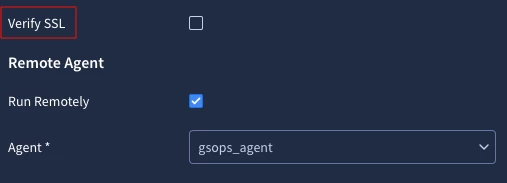I am trying to build a custom integration to connect to an on prem server running a certain service and running it via an integration instance with a remote agent.
I keep hitting this error when attempting to connect:
Caused by SSLError(SSLError(1, '[SSL: SSLV3_ALERT_HANDSHAKE_FAILURE] sslv3 alert handshake failure (_ssl.c:1006)')))
ssl_wrap_socket ssl_sock = _ssl_wrap_socket_impl(sock, context, tls_in_tls, server_hostname)
/usr/local/lib/python3.11/ssl.py", line 1104, in _create self.do_handshake() File "/usr/local/lib/python3.11/ssl.py", line 1382, in do_handshake self._sslobj.do_handshake() ssl.SSLError: [SSL: SSLV3_ALERT_HANDSHAKE_FAILURE] sslv3 alert handshake failure (_ssl.c:1006)
Has anyone else come across this?




